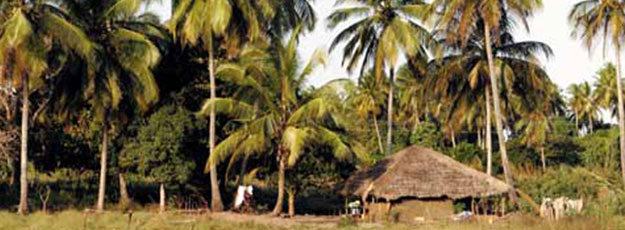Mozambique: President Chapo and Africa50 strengthen ties to accelerate the country's development
Mozambican researchers question weak investment in Zambezia

O País (File Photo)
An analysis published this month by the Observatory of Rural Environment (Observatório do Meio Rural / OMR) asks why Zambezia province occupies the worst positions when it comes to economic development in the country.
The researchers compared Zambezia province and Maputo city and concluded that, although according to the Constitution all citizens are equal before the law, the capital always comes out on top when it comes to access to public and private resources.
Although about 19 percent of the total population of the country live in Zambezia and about 5 percent in the city of Maputo, the capital receives 10 percent of the state budget and Zambezians only 9 percent.
In other words, researchers João Mosca and Yara Nova have found, while the population of Zambezia is about four times larger than Maputo’s, both parties receive around the same amount of state funds.
The differences are even greater for other items analyzed. For example, according to the survey, in Zambezia, there is one bank branch for more than 180,000 people, while in Maputo, there is one per 6,300 people.
In Zambezia province, the country’s central region, the bank branches are distributed with a density of about one per 4,200 square kilometers, while in the capital of the country there is one per two square kilometres.
With regard to poverty, despite Zambezia province registering fewer poor than the city of Maputo in a survey conducted between 2002 and 2003, six years later, between 2008 and 2009, 70 percent of Zambezians were poor, but only 36 percent of Maputo’s population.
The survey also notes that despite Zambezia’s economy being mainly agricultural, its chronic and acute malnutrition levels are the highest in the country. The researchers argue that the situation is the result of low monetary income, chronically undiversified agricultural production and the introduction of commodities which affect the volume of food production.
Overall, the researchers conclude that Zambezia has been heavily sidelined even when it comes to private investment and international cooperation.
“Given that Zambezia possesses an economic base primarily agricultural and rural and based on family farming, characteristics which have increased over the last three decades, the province suffered consequences because of government policy placing agriculture in a secondary role, in particular, small producers” consider researchers.
As a suggestion, João Mosca and Yara Novo argue that Zambezia province should receive more public funds, especially those directed to the governmental areas with greater effect on production, household income and well-being of the population.

Why is it that only 9 percent of the State’s General Budget is allocated to Zambezia?
Researchers further believe that, having Zambezia suffered a rupture processes with the economic and social crisis, where some of the key sectors of the economy will hardly recover in the short and medium term, in the current national and global economic contexts (eg copra, sisal and tea), we need to rethink the development of the province, with new productive specializations, knowing the great potential in the areas of agriculture, water, maritime, agro-industrial, mining and in the relations with Malawi.
“Zambezia, as the country and other parts of Mozambique, needs to be further studied to better understand the current phenomena, the most suitable developing paths and positions and political strategies. Zambezia needs to have a global and interdisciplinary designed development plan, with the backdrop of a political strategy and a philosophy of development, “advocates the study.
Another suggestion left by the researchers is that the governments of Zambezia, and of the other provinces should claim greater decentralization of the state, with regard to decision-making powers and the allocation and retention of public funds.
According to analysis, the Zambezian political, economic and military elites should do more for their province. “For example, there are voices claiming for more public resources and investment in the province. We do not observe, as is the case in some provinces, the formation of economic groups of local / ethnic basis (which may be open to criticism, under a certain perspective). This is mainly because Zambezia has not been an area that has attracted large amounts of capital,” the researchers say.
The authors conclude launching issues to motivate a deeper debate on the topic . For example,why putting family agriculture in a secondary place? What justifies for the low allocation of budgets for Zambezia?












Leave a Reply
Be the First to Comment!
You must be logged in to post a comment.
You must be logged in to post a comment.